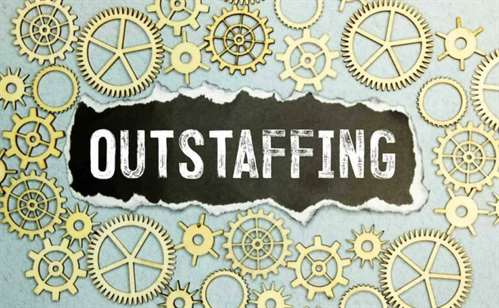What’s more, the use of blockchain in business enables the team to authenticate the traffic from the real world, which later helps to relish higher outcomes from every single penny invested in the process. As you can depict from its name, smart contracts are a kind of self-executing contract where all the terms and conditions from both parties are written in the form of codes. These codes are then stored on a decentralized blockchain network, making them immutable. Blockchain relies on cryptography and hashing techniques to create a secure, immutable “chain of blocks” that record all the transactions related to a business network.

Now that you know the capabilities of blockchain to change the way businesses operate, it is important to reflect on industries affected by blockchain. ’ and a clear impression of examples of blockchain applications in different industries can help in finding the answer. Over the course of time, blockchain has been adopted across various industries with promising outcomes. Here is an outline of the different blockchain business ideas which have been transforming notable industries. If you want to know how blockchain technology would change the way we do business, then it is important to reflect on current trends in the blockchain industry. An impression of the state of the global blockchain industry in 2022 could encourage many blockchain business ideas.
Access options
In recent years, the business sector has experienced a constant influx of new trends and advances. Businesses are searching for new technologies that are crucial to their survival in the digital how does blockchain improve business age. By utilising market-disrupting technology, digital transformation for businesses enables them to make strategic decisions, streamline company operations, and create new business models.

With its traditional and Liberty runtimes, IBM WebSphere Application Server can be used to modernize applications for production-ready, standards-based Java EE-compliant architectures. Organizations that want to build new applications can use IBM Blockchain Platform and integrate with popular third-party services by using standard Kubernetes integrations. The impact of blockchain trends in 2022, alongside the potential of blockchain for ensuring value in use cases across different industries, could encourage any individual to start their own blockchain-based venture. However, it is important to look out for pointers on adapting effectively to the wave of ‘blockchain change.’ With many industries encountering disruption with blockchain business, executives need to reflect on the following pointers. However, it is also reasonable to wonder about the impact of blockchain for business in different sectors. So, let us take a look at some of the top blockchain trends in 2022 and how they will influence businesses.
Blockchain: Ready for business
It’s nearly impossible to get information from the ledger unless you are a part of the blockchain, making it a very secure platform for payment. Just as networking, communications, culture and business were fundamentally altered with TCP/IP, blockchain is set to move beyond technology and change our basic architecture of connecting. This increased transparency not only reduces the risk of fraud and counterfeiting but also enhances overall efficiency and trust among all participants. With access to immutable data on the blockchain, businesses can make informed decisions, optimize inventory levels, and streamline logistics, ultimately improving customer satisfaction and optimizing supply chain performance.
- But extreme weather and other unexpected events can wreak havoc, and the entire supply chain suffers.
- The appeal of Blockchain technology for financial-services industry applications comes from the security, efficiencies and data validity inherent in the technology.
- Yet, the blocks are immutable, meaning they can merely add new transactions rather than edit the existing ones.
- In the event that a cybercriminal breaches a traditional store, everything is at risk.
- A result of this is that whenever they think about what blockchain for business means, they think about the extent of cryptocurrencies.
- Instead of being stored centrally, blockchain is a virtual database that is stored in a network where each user within the network has a local copy of the database.
In this article, we will explore seven key ways in which blockchain helps businesses accelerate their digital transformation. Industrial production teams are shifting their concentration from manufacturing products and parts in a massive amount to generate optimized outcomes. Enterprises need to develop a strategic microscopic production framework to assist the complex and large-scale operations. Organizations that still leverage legacy tools to ensure business growth will have collaboration challenges, a lack of digitization, and slower workflows.
Maximize Your Marketing ROI
As enterprises get comfortable with blockchain and DLT platforms, creative use cases are cropping up in many industries, fundamentally transforming the nature of doing business across organizational boundaries. It’s a distributed ledger technology that records all transactions between multiple parties on one theoretically immutable chain. Since everyone on the chain can immediately see all the data, including all transactions, this reduces the risk for fraud. It’s also easier for companies to prove compliance with regulations and head off expensive audits. Here’s a round-up of the latest blockchain predictions, spotlighting an early proof of concept from the construction industry.
Blockchain and other distributed ledger technologies are changing the nature of doing business and helping companies reimagine how they manage tangible and digital assets. Linda Pawczuk is the leader of Deloitte Consulting’s US blockchain group and coleader of Deloitte Consulting’s global blockchain group. Along with established technology vendors, more than a half dozen start-ups are developing or have launched decentralized backup, archive, and file-sharing services based on blockchain’s DLT and P2P protocols. Some of these new services not only aggregate unused drive capacity from datacenters, consumer computers, or both, but, in some instances, can act as a form of edge computing by only using storage resources closest to a customer’s regional location. Along with a group of start-ups, over the past six years, cloud service providers have begun rolling out blockchain products aimed at proving everything from distributed data storage to transaction networks. As enterprises continue their march toward hybrid cloud and cloud-native apps as part of their digital transformation (DX), they will inevitably have to decide if and where blockchain can play a role.
How generative AI correlates IT and business objectives to maximize business outcomes
Speed can be increased in the development of applications that are built for Kubernetes while meeting the technology standards and policies determined by a blockchain consortium. IBM Blockchain Platform and IBM Cloud Pak for Applications both use Red Hat OpenShift, a lightweight Kubernetes orchestration platform, where users can access Kubernetes-based, third-party tooling and deploy on premises or in multiple public clouds. Let’s dive in to understand the impact of blockchain for business in 2022 across various sectors. Another major role of blockchain in business is to introduce robust security measures in the environment. Because of the availability of different currencies across the globe and the involvement of multiple parties into the process, payment transfer often ends up being more complex, time-taking, and costlier. Another challenge that has been mitigated with the advent of Blockchain business models is that of payment barriers.

In my experience, blockchain can improve transactional processes among individuals, companies, suppliers and legislators to create more scalable, efficient solutions. To alleviate some of this burden, the US Department of Treasury’s Bureau of Fiscal Services is working to develop a blockchain solution to make the process of distributing grants and tracking the flow of money simpler. The project essentially https://www.globalcloudteam.com/ turns grant payments into digital tokens that represent actual money. Recipients can either redeem the token with government agencies for cash or divide it up and distribute to subgrantees, who also would be able to turn their token into actual money. Along the way, each token transaction updates a blockchain ledger with information about how much money was transferred and for what purpose.
Financial Management
This will create a transparent environment and enable the company to respond to your claim immediately. At the same time, patients also get comprehensive details about the co-payment even before leaving your office. Blockchain relies on cryptography and hashing techniques to create a secure, immutable “chain of blocks” that records all the transactions related to a business network. Cryptography refers to the way that a program is coded, and in terms of blockchain, cryptography allows users to complete a transaction without requiring authorization elsewhere in the chain. Once the transaction is processed securely and verified, it becomes a permanent part of the ledger, linking that chain together. In addition, Liberty Global is licensing these platforms to Infosys so the digital services provider can offer best-in-class services to new operators and new markets outside the Liberty Global family.

With the help of blockchain, enterprises could share information with each other and learn about the different ways of using blockchain. Collaboration on industry level could also help enterprise leaders discover opportunities for reducing risks of innovation. Big hotel chains often lose 10% to 15% of total revenue in commissions to third-party booking services. However, blockchain business ideas in hospitality can help in removing intermediaries and ensuring that revenue reaches organizations directly.
Navigating Security Gaps in SaaS Cloud: Protecting Your Data in the Digital Frontier with Data Security Services
Despite the fact that blockchain has significantly increased in popularity in the context of cryptocurrencies like bitcoin, terminology confusion persists. They continue to equate blockchain with bitcoin and frequently use the two terminologies interchangeably. Digital smart contracts are used for so long in various business processes when it comes to a central IT system ensuring data security and intermediary compliance with the rules. The implementation of blockchain technology will make both instances superfluous in the future, enable secure information storage, and automatically reliably modify information. This is the only way that should be followed by businesses to revolutionize the extensive process of digitization in the future.